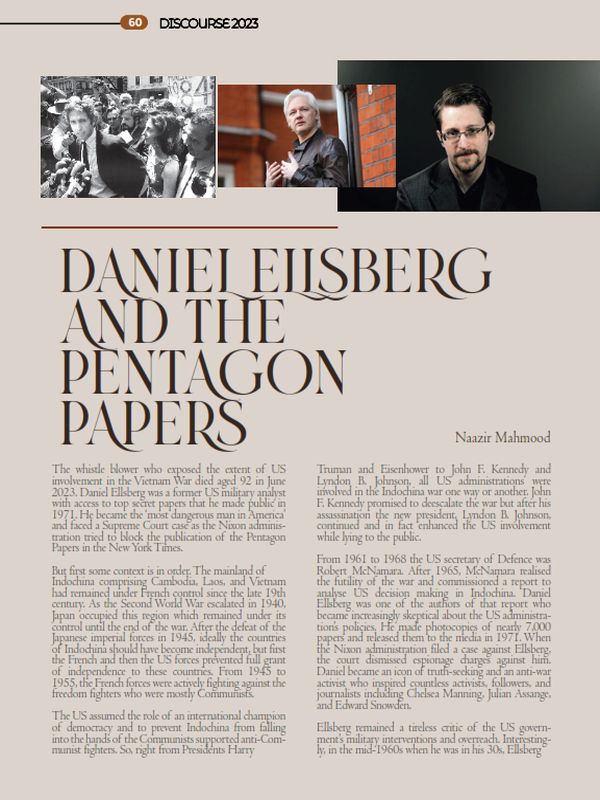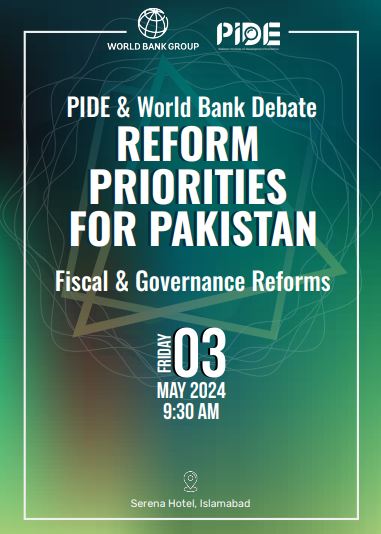Daniel Ellsberg and the Pentagon Papers
The whistle blower who exposed the extent of US involvement in the Vietnam War died aged 92 in June 2023. Daniel Ellsberg was a former US military analyst with access to top secret papers that he made public in 1971. He became the ‘most dangerous man in America’ and faced a Supreme Court case as the Nixon administration tried to block the publication of the Pentagon Papers in the New York Times.
But first some context is in order. The mainland of Indochina comprising Cambodia, Laos, and Vietnam had remained under French control since the late 19th century. As the Second World War escalated in 1940, Japan occupied this region which remained under its control until the end of the war. After the defeat of the Japanese imperial forces in 1945, ideally the countries of Indochina should have become independent, but first the French and then the US forces prevented full grant of independence to these countries. From 1945 to 1955, the French forces were actively fighting against the freedom fighters who were mostly Communists.
The US assumed the role of an international champion of democracy and to prevent Indochina from falling into the hands of the Communists supported anti-Communist fighters. So, right from Presidents Harry Truman and Eisenhower to John F. Kennedy and Lyndon B. Johnson, all US administrations were involved in the Indochina war one way or another. John F. Kennedy promised to deescalate the war but after his assassination the new president, Lyndon B. Johnson, continued and in fact enhanced the US involvement while lying to the public.
From 1961 to 1968 the US secretary of Defence was Robert McNamara. After 1965, McNamara realised the futility of the war and commissioned a report to analyse US decision making in Indochina. Daniel Ellsberg was one of the authors of that report who became increasingly skeptical about the US administration’s policies. He made photocopies of nearly 7,000 papers and released them to the media in 1971. When the Nixon administration filed a case against Ellsberg, the court dismissed espionage charges against him. Daniel became an icon of truth-seeking and an anti-war activist who inspired countless activists, followers, and journalists including Chelsea Manning, Julian Assange, and Edward Snowden.
Ellsberg remained a tireless critic of the US government’s military interventions and overreach. Interestingly, in the mid-1960s when he was in his 30s, Ellsberg emerged as a bright young fellow, a staunch anti-Communist and supported the war effort. He advised the White House on nuclear strategy and assessed the Vietnam War for the Department of Defence. When he leaked the Pentagon Papers to expose actions the US had been taking in Indochina, he took a major risk. Ellsberg had learned during his association with the Department of Defence and Rand Corporation that the US policy was a pack of lies.
His association with war efforts weighed heavily on his conscience and he wanted the public to know what was actually happening in Indochina. He thought if only the public knew, there would be increased political pressure to end the war and the government would not be able to resist the public demand. The release of the Pentagon Papers exposed deceptions by successive US governments which had no solid rationale to waste public money on killing hundreds of thousands of people across thousands of miles. The papers contradicted the statements that successive US presidents and other high-office holders had been making for decades.
The publication of these papers made damning revelations and helped bring an end to the conflict. Ultimately, this also contributed to President Nixon’s downfall. For this daring act, many observers still consider Ellsberg as ‘the grandfather of whistleblowers’ as his intervention radically changed the public opinion against the war. Though the Nixon administration filed a case against him, it set a precedent and since then no US government has tried to injunct a paper on security grounds. The New York Times was the first newspaper to publish the Pentagon Papers creating a First Amendment clash between the Nixon administration and the press.
The newspapers did not carry the Pentagon Papers in their entirety as in the absence of page numbers, their sequence was not clear. The New York Times and then the Washington Post developed stories based on those scattered pages. Still, the government officials considered it as an act of espionage that compromised national security. The best outcome of the entire episode was that the US Supreme Court ruled in favour of the freedom of the press. The federal court in Los Angeles did charge Ellsberg in 1971 with conspiracy and espionage, but before the jury could reach a verdict the judge threw out the case.
Actually, during the case the Nixon administration functionaries barged into the office of Ellsberg’s psychiatrist to get hold of information about Ellsberg’s mental issues. This was a gross misconduct and when the court came to know about it, the judge cited serious government misconduct including illegal wiretapping. The Nixon administration also tried to influence the judge by secretly offering him the job of FBI director. But the most important misconduct was a government-sanctioned burglary into the office of Ellsberg’s psychiatrist. It is perhaps worth-noting that Ellsberg was also a Marine Corps veteran with a Harvard doctorate in economics.
In later years, Ellsberg moulded many young activists and journalists by asking a simple question: ‘Who gets to define the national interest?” This is a primary question that all advocates of freedom of expression must ask. Is it some admin officers, the establishment, and the government that arrogate to themselves the sole prerogative to define national interest? Or the people of conscience that should be able to expose the lies and misstatements that the establishment and successive governments pedal year after year? Should we continue our quest to hold the establishment and successive governments accountable or should we toe their line?
Let’s take the example of Julian Assange whose organisation published more than 700,000 confidential diplomatic cables, documents, and videos that a US Army intelligence analyst provided in 2010. If we get to know about governmental lies should we get the information out? When Ellsberg copied the Pentagon Papers in 1969 he knew that this act might land him in prison for life. In countries such as Pakistan, a conscientious journalist like Saleem Shehzad loses his life and the likes of Absar Alam and Hamid Mir become victims of gunfire attacks. Journalists such as Asad Toor, Matiullah Jan, and Umar Cheema have faced abductions and torture.
Not many can accept this likely fate gladly. Is whistleblowing worth the risk despite knowing that the establishment or government is not being honest with the public? Perhaps it depends on the level and magnitude of the catastrophe at hand. When millions of people have suffered as a result of the lies perhaps the risk is worth taking; but again, not many have the guts to challenge the dominant narratives no matter how misleading they may be. Even a small exposé can have a lasting impact, but who knows the price one has to pay for such daring acts as some of the journalists mentioned above have paid.
Even a small chance of having a small effect is worth taking as these small contributions make a greater impact. In some cases, it is obligatory to take a chance. Ellsberg hoped that his leak would end a long and costly conflict, and while it took some time but his hope was ultimately fulfilled. The Pentagon Papers have left a lasting legacy, and those who want to know more about this episode may watch a brilliant film by Steven Spielberg ‘The Post’ (2017) starring Tom Hanks and Meryl Streep as the editor and publisher respectively of The Washington Post.
The author is an analyst, columnist, educationist, and consultant who has taught at a series of higher education institutions in Pakistan, including the IBA Karachi, Hamdard University, and and FAST NUCES. He writes weekly columns for Daily Jang in Urdu and The News International in English and has worked for various donor agencies including UNDP, EU, CIDA, WBG, UK Aid, and USAID. He tweets at @NaazirMahmood and may be reached at [email protected].





